PMP 2017 - Detailed Programme
Detailed programme of 2017 PMP Conference
Contents |
Plenary Speakers and Topics
Plenary Session 1 - An update on the Fear-Avoidance model of chronic pain
Johan W.S. Vlaeyen PhD

Johan W.S. Vlaeyen PhD is full professor at the Universities of Leuven (Belgium) and Maastricht (Netherlands). His main research interests/expertise are the behavioral, cognitive and motivational mechanisms leading to disability, and the development and evaluation of customized cognitive-behavioral management strategies for individuals suffering chronic bodily symptoms (pain, fatigue, tinnitus). His experimental work includes research on the acquisition of pain-related fear through direct experience, observational learning, and verbal-symbolic learning. He studies the role of unpredictability on the generalization of bodily symptoms and illness behaviours, with a special attention to the competition between avoidance versus reward seeking tendencies. Johan Vlaeyen highly values translational research, and he and his team have developed fear-reduction treatments and utilized replicated single-case experimental designs to evaluate the effects of behavioural interventions for patients with chronic bodily symptoms such as chronic pain and bothersome tinnitus. Johan W.S. Vlaeyen is on the editorial board of the journal Pain, European Journal of Pain, Clinical Journal of Pain, Scandinavian Journal of Pain, Cognitive Behaviour Therapy, and Translational Behavioural Medicine. He is principal author of the book “Pain-related Fear: Exposure-based Treatment of Chronic Pain” (IASP Press 2012), coeditor of the book “Fordyce’s Behavioral Methods for chronic Pain and Illness republished with invited commentaries” (IASP Press 2014). He received the Pain Award of the Dutch Chapter of IASP, has been awarded Distinguished International Affiliate of the American Psychological Association, for “unusual and outstanding contributions” to health psychology in 2015, he has an adjunct research professorship at the University of South Australia (Adelaide Australia), and obtained an honorary doctorate at the University of Örebro (Sweden) for his scientific contributions in the area of health psychology.
Plenary Session 2 - Does our evaluation tell us what we need to know?
Amanda C de C Williams, UCL, UCLH, ICHHR
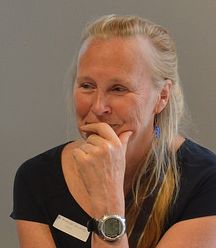
Almost every published outcome study of pain management programmes starts with facts about the prevalence of chronic pain, the costs at a national level of treatment for pain (with little benefit); and the work days lost to pain. Their results describe mean changes in patient function, mood, and pain, plus or minus various other psychological constructs, most of which tell us the same thing. They rarely report changes in healthcare use, or in work status or sickness absence: these seem to take us out of our comfort zone. Nor do they necessarily address what is important to patients. And when our groups are so diverse, and there are no predictors of doing better or worse, rather than using group data with large variance we would do well to explore individual data and patient trajectories.
But there is also a bigger picture: why is the pain management programme often the only part of the pain clinic treatment spectrum that routinely evaluates its outcome when the evidence is better than for many other treatments that are provided without any monitoring of outcome? Are we perpetuating our status as marginal or experimental intervention, or of doubtful effectiveness?
Amanda is an academic psychologist at UCL, with a clinical session at the Pain Management Centre, UCLH. She also works for the International Centre for Health and Human Rights. She has worked in the pain field for over 30 years, and before becoming an academic, she worked in inpatient and outpatient pain management programmes. At UCL she teaches undergraduate and postgraduate psychologists and medical students and supervises their research. Her particular interests are evaluation of psychologically-based treatments, including systematic reviews, meta-analyses, and national and international guidelines; in expression of pain and its interpretation by clinicians; in pain from torture; and in the use of responsive technology to extend healthcare. She has written over 200 papers and chapters on aspects of pain and psychology, and presents at national and international pain meetings.
Plenary Session 3 - The Great ACT Debate - "ACT: best thing since sliced bread or the Emperor’s new clothes?"
Jim Coyne and David Gillanders

James C. Coyne, PhD
Jame C. Coyne PhD, was born in Chelsea Massachusetts and attended high school in New London High School, New London Connecticut. He received a BA from Carnegie Mellon University and a PhD from Indiana University. He is Professor of Health Psychology at University Medical Center, Groningen, the Netherlands where he teaches scientific writing and critical thinking. He is also Visiting Professor, Institute for Health, Health Care Policy & Aging Research, Rutgers, the State University of New Jersey. Dr. Coyne is Emeritus Professor of Psychology in Psychiatry, Perelman School of Medicine at the University of Pennsylvania, where he was also Director of Behavioral Oncology, Abramson Cancer Center and Senior Fellow Leonard Davis Institute of Health Economics.
Jim has written over 400 papers and chapters, and was recently designated one of the 200 most eminent psychologists of the second half of the 20th century.
Dr. Coyne is also a blogger at Science-Based Medicine and PLOS Mind the Brain and teaches a popular workshop, How to Write High Impact Papers and What to Do When Your Manuscript Is Rejected.
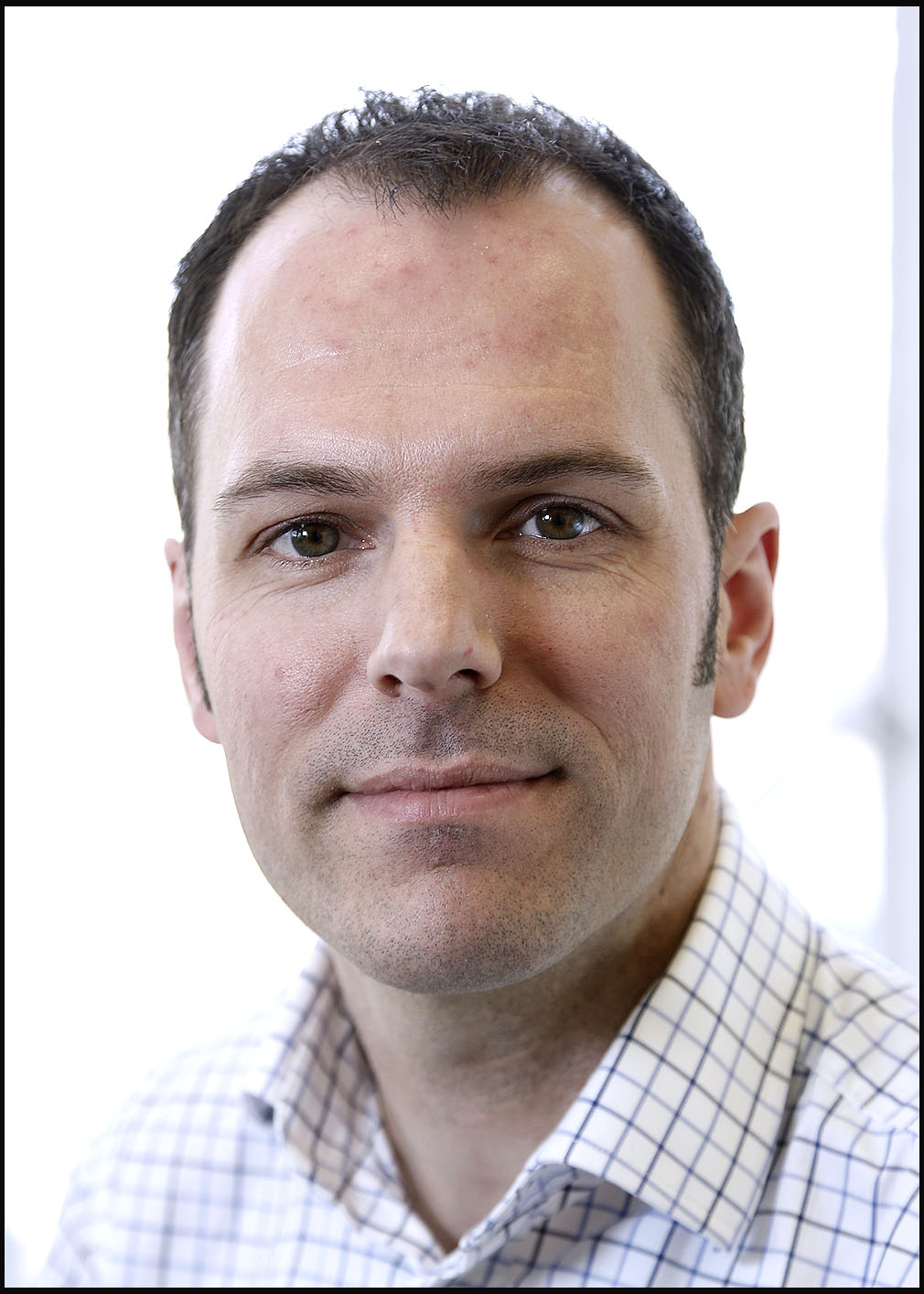
David Gillanders
David Gillanders is a Chartered Clinical Psychologist, member of the British Psychological Society, Health & Care Professions Council, British Association of Behavioural & Cognitive Psychotherapy and a founder member of the Association for Contextual Behavioural Science. He is a senior lecturer in clinical psychology at the University of Edinburgh and Academic Director of the doctoral programme in clinical psychology. He leads a programme of research into the application of contextual behavioural science to living well with ill health, as well research into training, supervision and basic measurement in behavioural science. He has published more than 30 peer reviewed articles and several book chapters, and is co-author of the self-help book, “Better Living with IBS”. He is a peer reviewed ACT trainer with ACBS. The peer review is the international association’s mark of high quality, high fidelity ACT training as evidenced by the applicant submitting a portfolio of training work (including observations) to be reviewed by independent ACT experts. David is a first Dan black belt in JKA Shotokan Karate, and the father of three children, seven, five and one years old.
Plenary Session 4 -
Pain neurophysiology Education – The patients perspective
Comac Ryan, PhD

Since the publication of Explain Pain in 2003, Pain Neurophysiology Education (PNE) has become increasingly popular as an intervention for patients with persistent pain. There is a growing body of evidence to support its effectiveness of as an educational intervention. However, very little qualitative research has been undertaken during this time period. Qualitative investigation is important because it can give a unique in-depth insight into the patients experience of the intervention, which can be used to tailor the education to enhance its effectiveness in the future. In this presentation, a series of three qualitative studies will be presented which give a unique insight into patients experiences of PNE and their perceptions of their pain following the intervention.
Cormac is a Reader in Physiotherapy at Teesside University. He graduated from the University of Limerick in 2002 with a BSc in Sports and Exercise Science and completed an MSc in Physiotherapy (pre-registration) at Queen Margaret University College, Edinburgh. He was awarded his PhD from the Glasgow Caledonian University in 2008 where he looked at the relationship between physical activity and chronic lower back pain. His main area of research is the management of persistent pain with a special interest in pain neurophysiology education.
Plenary Session 5 -
Identifying and addressing psychological issues in people presenting with pain
Tamar Pincus, PhD

There is now a large body of evidence indicating that psychological factors, such as distress, catastrophic thinking and fear leading to avoidance and withdrawal from activities are associated with prognosis and patients’ outcomes. However, how to identify these within the consultation, and how to address them effectively remains a challenge for many practitioners.
In this talk I will introduce evidence suggesting that pain-related distress differs from clinical depression, and introduce more recent research on less known factors, such as pain-related guilt and uncertainty. I will explore some of the current psychological interventions available, and describe emerging evidence on delivering effective reassurance within the consultation.
Professor Tamar Pincus holds a PhD in psychology (University College London), as well as Masters degrees in experimental research methods in psychology (UCL), and epidemiology (Cambridge University). She is a registered practicing practitioner with the Health Professional Council. Her research has embraced a variety of methodologies, including experimental, epidemiological and qualitative. The research has included investigation of attention and recall in pain patients; the psychological predictors for poor outcome in low back pain, and the study of clinicians’ beliefs and attitudes in low back pain. Her research has included the investigation of interventions through randomised controlled trials, and throughout she has collaborated closely with researchers from many disciplines, including doctors, physiotherapists, osteopaths, chiropractors and clinical psychologists, from a multitude of institutions, in the UK and internationally. She also convened the international consensus group to establish what factors and measures should be included in prospective cohorts investigation the transition from early to persistent back pain. Most recently her research has focused on delivering effective reassurance to patients in primary care, and studying the use of technology to deliver rehabilitation. Her practical work has focused on training practitioners in effective communication skills and fostering awareness of patients’ psychological needs and concerns.
Plenary Session 1 - An update on the Fear-Avoidance model of chronic pain
Johan W.S. Vlaeyen PhD

Johan W.S. Vlaeyen PhD is full professor at the Universities of Leuven (Belgium) and Maastricht (Netherlands). His main research interests/expertise are the behavioral, cognitive and motivational mechanisms leading to disability, and the development and evaluation of customized cognitive-behavioral management strategies for individuals suffering chronic bodily symptoms (pain, fatigue, tinnitus). His experimental work includes research on the acquisition of pain-related fear through direct experience, observational learning, and verbal-symbolic learning. He studies the role of unpredictability on the generalization of bodily symptoms and illness behaviours, with a special attention to the competition between avoidance versus reward seeking tendencies. Johan Vlaeyen highly values translational research, and he and his team have developed fear-reduction treatments and utilized replicated single-case experimental designs to evaluate the effects of behavioural interventions for patients with chronic bodily symptoms such as chronic pain and bothersome tinnitus. Johan W.S. Vlaeyen is on the editorial board of the journal Pain, European Journal of Pain, Clinical Journal of Pain, Scandinavian Journal of Pain, Cognitive Behaviour Therapy, and Translational Behavioural Medicine. He is principal author of the book “Pain-related Fear: Exposure-based Treatment of Chronic Pain” (IASP Press 2012), coeditor of the book “Fordyce’s Behavioral Methods for chronic Pain and Illness republished with invited commentaries” (IASP Press 2014). He received the Pain Award of the Dutch Chapter of IASP, has been awarded Distinguished International Affiliate of the American Psychological Association, for “unusual and outstanding contributions” to health psychology in 2015, he has an adjunct research professorship at the University of South Australia (Adelaide Australia), and obtained an honorary doctorate at the University of Örebro (Sweden) for his scientific contributions in the area of health psychology.
Plenary Session 2 - Does our evaluation tell us what we need to know?
Amanda C de C Williams, UCL, UCLH, ICHHR

Almost every published outcome study of pain management programmes starts with facts about the prevalence of chronic pain, the costs at a national level of treatment for pain (with little benefit); and the work days lost to pain. Their results describe mean changes in patient function, mood, and pain, plus or minus various other psychological constructs, most of which tell us the same thing. They rarely report changes in healthcare use, or in work status or sickness absence: these seem to take us out of our comfort zone. Nor do they necessarily address what is important to patients. And when our groups are so diverse, and there are no predictors of doing better or worse, rather than using group data with large variance we would do well to explore individual data and patient trajectories.
But there is also a bigger picture: why is the pain management programme often the only part of the pain clinic treatment spectrum that routinely evaluates its outcome when the evidence is better than for many other treatments that are provided without any monitoring of outcome? Are we perpetuating our status as marginal or experimental intervention, or of doubtful effectiveness?
Amanda is an academic psychologist at UCL, with a clinical session at the Pain Management Centre, UCLH. She also works for the International Centre for Health and Human Rights. She has worked in the pain field for over 30 years, and before becoming an academic, she worked in inpatient and outpatient pain management programmes. At UCL she teaches undergraduate and postgraduate psychologists and medical students and supervises their research. Her particular interests are evaluation of psychologically-based treatments, including systematic reviews, meta-analyses, and national and international guidelines; in expression of pain and its interpretation by clinicians; in pain from torture; and in the use of responsive technology to extend healthcare. She has written over 200 papers and chapters on aspects of pain and psychology, and presents at national and international pain meetings.
Plenary Session 3 - The Great ACT Debate - "ACT: best thing since sliced bread or the Emperor’s new clothes?"
Jim Coyne and David Gillanders

James C. Coyne, PhD
Jame C. Coyne PhD, was born in Chelsea Massachusetts and attended high school in New London High School, New London Connecticut. He received a BA from Carnegie Mellon University and a PhD from Indiana University. He is Professor of Health Psychology at University Medical Center, Groningen, the Netherlands where he teaches scientific writing and critical thinking. He is also Visiting Professor, Institute for Health, Health Care Policy & Aging Research, Rutgers, the State University of New Jersey. Dr. Coyne is Emeritus Professor of Psychology in Psychiatry, Perelman School of Medicine at the University of Pennsylvania, where he was also Director of Behavioral Oncology, Abramson Cancer Center and Senior Fellow Leonard Davis Institute of Health Economics.
Jim has written over 400 papers and chapters, and was recently designated one of the 200 most eminent psychologists of the second half of the 20th century.
Dr. Coyne is also a blogger at Science-Based Medicine and PLOS Mind the Brain and teaches a popular workshop, How to Write High Impact Papers and What to Do When Your Manuscript Is Rejected.

David Gillanders
David Gillanders is a Chartered Clinical Psychologist, member of the British Psychological Society, Health & Care Professions Council, British Association of Behavioural & Cognitive Psychotherapy and a founder member of the Association for Contextual Behavioural Science. He is a senior lecturer in clinical psychology at the University of Edinburgh and Academic Director of the doctoral programme in clinical psychology. He leads a programme of research into the application of contextual behavioural science to living well with ill health, as well research into training, supervision and basic measurement in behavioural science. He has published more than 30 peer reviewed articles and several book chapters, and is co-author of the self-help book, “Better Living with IBS”. He is a peer reviewed ACT trainer with ACBS. The peer review is the international association’s mark of high quality, high fidelity ACT training as evidenced by the applicant submitting a portfolio of training work (including observations) to be reviewed by independent ACT experts. David is a first Dan black belt in JKA Shotokan Karate, and the father of three children, seven, five and one years old.
Plenary Session 4 -
Pain neurophysiology Education – The patients perspective
Comac Ryan, PhD

Since the publication of Explain Pain in 2003, Pain Neurophysiology Education (PNE) has become increasingly popular as an intervention for patients with persistent pain. There is a growing body of evidence to support its effectiveness of as an educational intervention. However, very little qualitative research has been undertaken during this time period. Qualitative investigation is important because it can give a unique in-depth insight into the patients experience of the intervention, which can be used to tailor the education to enhance its effectiveness in the future. In this presentation, a series of three qualitative studies will be presented which give a unique insight into patients experiences of PNE and their perceptions of their pain following the intervention.
Cormac is a Reader in Physiotherapy at Teesside University. He graduated from the University of Limerick in 2002 with a BSc in Sports and Exercise Science and completed an MSc in Physiotherapy (pre-registration) at Queen Margaret University College, Edinburgh. He was awarded his PhD from the Glasgow Caledonian University in 2008 where he looked at the relationship between physical activity and chronic lower back pain. His main area of research is the management of persistent pain with a special interest in pain neurophysiology education.
Plenary Session 5 -
Identifying and addressing psychological issues in people presenting with pain
Tamar Pincus, PhD

There is now a large body of evidence indicating that psychological factors, such as distress, catastrophic thinking and fear leading to avoidance and withdrawal from activities are associated with prognosis and patients’ outcomes. However, how to identify these within the consultation, and how to address them effectively remains a challenge for many practitioners.
In this talk I will introduce evidence suggesting that pain-related distress differs from clinical depression, and introduce more recent research on less known factors, such as pain-related guilt and uncertainty. I will explore some of the current psychological interventions available, and describe emerging evidence on delivering effective reassurance within the consultation.
Professor Tamar Pincus holds a PhD in psychology (University College London), as well as Masters degrees in experimental research methods in psychology (UCL), and epidemiology (Cambridge University). She is a registered practicing practitioner with the Health Professional Council. Her research has embraced a variety of methodologies, including experimental, epidemiological and qualitative. The research has included investigation of attention and recall in pain patients; the psychological predictors for poor outcome in low back pain, and the study of clinicians’ beliefs and attitudes in low back pain. Her research has included the investigation of interventions through randomised controlled trials, and throughout she has collaborated closely with researchers from many disciplines, including doctors, physiotherapists, osteopaths, chiropractors and clinical psychologists, from a multitude of institutions, in the UK and internationally. She also convened the international consensus group to establish what factors and measures should be included in prospective cohorts investigation the transition from early to persistent back pain. Most recently her research has focused on delivering effective reassurance to patients in primary care, and studying the use of technology to deliver rehabilitation. Her practical work has focused on training practitioners in effective communication skills and fostering awareness of patients’ psychological needs and concerns.
Parallel Sessions
Workshop Details:
A.
‘Fear of Technology’ – Sarah Densham, clinical psychologist and John Worth, Dorset
Describing the challenges and benefits of using digital / online technology to deliver services and engage with clients, based on the experience of the team in Dorset [more details to follow].
B & E (Repeat)
Return to work: What can Pain Clinicians do? – Gail Sowden and Christine Parker
Learning Objectives:
i) To be better equipped (knowledge and skills) to assess and address obstacles to people with chronic pain remaining in or returning to work
ii) To take away practical resources that can be used with patients in the clinic.
iii) To be aware of other resources and services that people who have chronic pain and work related issues can be signposted to.
Description: One third of all work absence is attributable to long-term musculoskeletal conditions and it is widely recognised that presenteeism, sickness absence and work loss are associated with considerable costs to the individual, their families and to society. One of the chapters in The BPS PMP Guidelines (2013) was titled “Assisting retention and return to work in PMPs” and one of the standards for pain management programmes (Faculty of Pain Medicine, The core standards for pain management services in the UK , 2015) states that “Interventions to facilitate return to work should be viewed as an essential component of the work of PMP teams and be integrated with other treatment offered”. However, vocational rehabilitation is poorly understood and there is a common clinician belief that patients will not engage with work related interventions. It is often perceived by clinicians as complex, requiring specialist expertise and at the same time training is scarce. As a result clinicians often feel ill equipped to assess or address work related issues. This workshop therefore aims to provide information and practical advice on what busy pain management clinicians can do to support people with chronic pain to remain in or return to work. It will provide tools to support work-related discussions and facilitate planning for work. It will also provide information about resources and services that people can be signposted to.
Implications/conclusions: Assisting people with chronic pain to remain in or return to work is likely to improve physical and mental health and overall quality of life. This workshop will help equip pain management clinicians to meet the standard for pain management programmes and the BPS PMP Guidelines recommendations relating to work.
Gail Sowden (Convener):
Gail Sowden has clinical, research, teaching, service and role development expertise in vocational rehabilitation. She recently developed and delivered training to enable clinicians to fulfil the role of vocational case manager in a cluster randomised trial (The Study of Work and Pain (SWAP)). She is a Consultant Physiotherapist, Chair of the PMP SIG Committee and a NICE Fellow.

Christine Parker
Christine Parker practiced in Pain Management for over 10yrs and is a Senior Lecturer at the University of Salford. Her responsibilities include delivering the MSc Occupational and Vocational Rehabilitation and engaging in research and enterprise activity to improve collaboration between health and the workplace. Christine has delivered training for a range of health and social care professionals on developing healthy work conversations, work-related health outcomes and a work focus in routine practice.

C.
When life is on hold in the search for pain control: A seminar on Acceptance and Mindfulness in Pain Management. - David Gillanders
When people develop pain it is the most natural thing to seek to understand, treat underlying pathology and resolve the pain complaint. For some people however, this approach does not lead to resolution. Instead, life plans go on hold whilst the person seeks to control their pain as a prerequisite to living life. In the service of gaining control over pain (or not making it worse) people gradually stop doing normal activities, life shrinks, they experience less pleasure and a downward spiral of disuse, disability and distress can set in.
In this seminar, you will be introduced to the main concepts used in Acceptance and Commitment Therapy for chronic pain. You will learn that from an ACT perspective, acceptance is a behavioural choice, not a resigned, passive, defeat. You will learn that by increasing awareness of what is influencing us moment to moment, we are in a better position to control our own behaviour. You will learn what we mean by values and how they are linked to, but distinct from goals. Finally, you will learn that ACT’s main focus is on workability: on helping people to do what is effective.. Frequently, this focus on workability leads patients to step outside of our dominant cultural narrative of pain control, and to begin choosing acceptance and mindful awareness as a route to living more fully with a pain condition.
This seminar will contain teaching, reflection and live demonstration of techniques that are typically used in ACT for Chronic Pain.
David Gillanders is a Chartered Clinical Psychologist, member of the British Psychological Society, Health & Care Professions Council, British Association of Behavioural & Cognitive Psychotherapy and a founder member of the Association for Contextual Behavioural Science. He is a senior lecturer in clinical psychology at the University of Edinburgh and Academic Director of the doctoral programme in clinical psychology. He leads a programme of research into the application of contextual behavioural science to living well with ill health, as well research into training, supervision and basic measurement in behavioural science. He has published more than 30 peer reviewed articles and several book chapters, and is co-author of the self-help book, “Better Living with IBS”. He is a peer reviewed ACT trainer with ACBS. The peer review is the international association’s mark of high quality, high fidelity ACT training as evidenced by the applicant submitting a portfolio of training work (including observations) to be reviewed by independent ACT experts. David is a first Dan black belt in JKA Shotokan Karate, and the father of three children, seven, five and one years old.

D.
Mindfulness training for PMP staff - how much is enough? (Or, fear of being a mindfulness maverick) - Lars Williams, Jacquelyn Watson, Lorna Semple, Neil Rothwell
As the use of mindfulness-based interventions (MBIs) in healthcare settings has increased, so has the need for clearly defined and regulated training pathways for health professionals delivering these MBIs. However, nationally agreed minimum standards for formal mindfulness training are high, and may be difficult to meet for healthcare professionals who might not have a large commitment to delivering MBIs in their job plan.
Although pain management programmes (PMPs) are not, strictly speaking, MBIs, most PMPs incorporate some form of mindfulness practice – this is particularly the case for PMPs using Acceptance and Commitment Therapy (ACT) as an underlying model. If PMP staff are teaching mindfulness to patients attending their programmes, what sort of training and supervision should they have to do so?
The aim of this workshop is to explore how mindfulness is used in a PMP setting, discuss current national guidelines for practitioners delivering MBIs, and consider their relevance to staff who deliver mindfulness as part of a PMP. We are also keen to discover how PMP staff are being trained in mindfulness, and explore potential obstacles to meeting training requirements in a PMP setting. Should PMP staff undergo the same mindfulness training as staff delivering formal MBIs? Is there a role for a bespoke training pathway for PMP staff?
Lars Williams (MBChB, FRCA, FFPMRCA, Dip Pain Man), works in Glasgow as a full-time consultant in pain medicine, with a background in anaesthesia (and, briefly, psychiatry). He first became interested in mindfulness in 2008, when he began working at the Glasgow PMP, an ACT-based programme. After having led mindfulness sessions for many years (and produced a CD and manual for PMP participants), he had a bit of a shock when he began attending a local, psychology-led mindfulness supervision group and realised how far he was from meeting formal training requirements. He has subsequently rectified this to some extent, and is now a formally qualified mindfulness teacher, but pursuing this training has not been easy. Lars, Lyn and Lorna have piloted an 8-week MBSR course for PMP graduates, which they plan to extend to all pain service patients later in the year.
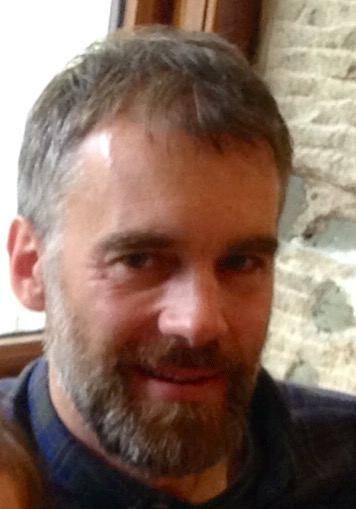
Jacquelyn Watson registered as a nurse in 1992 and has since gone on to qualify as an independent prescriber. She has worked within the Glasgow Pain Management Programme since its inception in 2007 and has been actively involved in various projects including the implementation and coordination of a patient delivered pain information session in the community and the co facilitation of an 8 week Mindfulness course for graduates of the Glasgow Pain Management Programme.

Lorna Semple is a Clinical Specialist Physiotherapist in Pain Management who works within the Glasgow Pain Management Programme in NHS Greater Glasgow and Clyde. She graduated with a BSc (Hons) in Physiotherapy from Glasgow Caledonian University and MSc Sports Medicine from University of Strathclyde. Work experience includes MSK Physiotherapy, Occupational Health, as well as Secondary and Tertiary Care Pain Services. Currently undertaking a NES Fellowship Award to evaluate post-registration, inter-disciplinary pain training delivery as well as current learning needs within NHSGGC. Current research activity includes: a qualitative study into factors which influence chronic pain patients’ responses to the Tampa Scale for Kinesiophobia (TSK) using a ‘thinking out loud’ approach.

Neil Rothwell is a freelance clinical psychologist. He has extensive experience in the practice and teaching mindfulness and has published articles on the approach. He has also been running regular mindfulness courses for clients and NHS staff for the past 15 years. He is part of a NES-funded project to make mindfulness available to patients with depression and other conditions. Previous jobs have included head of the Primary Care Adult Psychology Service in NHS Forth Valley, and clinical manager at the Robert Fergusson Unit national rehabilitation service for people with brain injury.
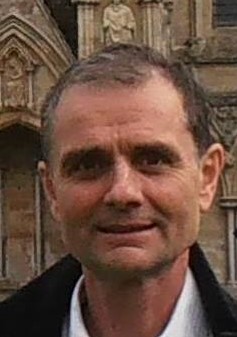
F.
‘Fear of Patient Involvement’ – Martin Dunbar (Glasgow) & Nick Ambler (Bristol)
This workshop is designed to explore clinicians’ fears about working with patient volunteers and looks at what can be done to allay those fears. Martin Dunbar will describe the various ways in which the Glasgow PMP has worked with patients to co-produce clinical materials and to deliver services and what training, supervision and when there is a need for more formal governance. Nick Ambler will update the conference on his and others work with PMP graduate led, follow-up groups.
Martin Dunbar is a consultant clinical psychologist and the clinical lead for the Glasgow and Clyde Pain Management Programme. He has previously contributed to the SIGN Guideline on the management of chronic pain and has served on Scotland’s National Steering Group for Chronic Pain.
Nick Ambler is a consultant clinical psychologist with the North Bristol NHS Trust. He has led the PMP for 28 years and over this time he developed a number of innovations in models of service provision, as well as applying self management methods to other long term conditions and developing the cancer recovery pathway.
G.
Fear of Self-Compassion: Compassion Focused Therapy (CFT) for Strivers in Pain – Zoey Malpus (Manchester)
Presenters: Dr Zoey Malpus Consultant Clinical Psychologist, Pain Team, Manchester Royal Infirmary Dr Lesley Armitage, Chartered Counselling Psychologist, Chester-le-Street Community Hopsital, Durham
Chair: Dr Hannah Dowling, Clinical Psychologist in Pain Management, Trafford Integrated Community Pain Team.
Brief overview:
Current guidelines recommend Cognitive Behavioural Therapy (CBT) based pain management for pain related disability and distress. Recent studies have suggested that self-compassion may be a key factor in determining the degree of psychological distress experienced by people in chronic pain and their ability to adjust to the pain (Costa & Pinto-Gouveia, 2013; Wren et al, 2012; Purdie & Morley, 2015).Many people with persistent pain experience high levels of shame and self-criticism and low self-compassion; these may present barriers to CBT strategies such as pacing and acceptance, because shame can drive people to over-activity.
Compassion Focused Therapy (CFT) is a third wave psychological therapy which has been adapted for persistent pain. CFT provides an explicit focus on de-shaming and developing self-compassion, while educating patients about neurobiology, evolutionary psychology and common humanity. CFT encourages self-compassion, acceptance and willingness to engage in activities without the need to control, fight or avoid pain. This work shop presents data from an eight week CFT for Pain group. This is a collaborative project delivered by Manchester and Durham Pain Teams and has been running for two years. There will be an opportunity to experience some of the techniques included in CFT for Pain groups.
Dr Zoey G. Malpus has been working in multidisciplinary pain teams for over twelve years, delivering psychologically based pain management in community, and hospital settings, including inpatient pain teams. For the last five years she has been developing Compassion Focused Therapy for Pain Management, sharing preliminary findings through poster abstracts and recent publication. Dr Malpus is currently an elected member of the British Pain Society Council, previous chair of the Pain Management Programme Special Interest Group and Pain Network Chair for the British Psychological Society. She was lead author for the pain psychologist chapter of the recent Core Standards for Pain Services in the UK, published by the Faculty of Pain Medicine, Royal College of Anaesthetists. She was also lead author of the e-pain module Psychological Assessment and Approaches to Treatment.

H & J. (Repeat)
Shame, Guilt and Humiliation – barriers to treatment, and to living with Chronic Pain – Jeremy Gauntlet-Gilbert
People with chronic pain experience high levels of shame and guilt. Moreover, every aspect of pain management treatment – struggling to exercise, to pace, to communicate assertively – can trigger further embarrassment and struggle. Unfortunately there has been little research on these emotions, and as such there is little information to guide treatment. This workshop will provide a guide and overview to these ‘self-conscious’ emotions and their clinical impact. We will review data on how these emotions affect functioning and life quality, as well as how they change over the course of pain management treatment. The workshop will then address clinical experience in this area and clinical implications. As a group, we will discuss psychological models and treatment, and also how these emotions can be addressed in other domains such as physical and activity management interventions.
I & K. (Repeat)
The Open, Aware and Engaged Therapist: Pain - Related Exposure - A Practical Approach – Clair Jacobs, Input
INPUT Pain Management Team
This workshop is an opportunity for the INPUT Pain Management team to share clinical experience of using ACT and exposure work within teams and patient groups.
We aim to provide a practical, experiential session that explores strategies for doing exposure work in the context of ACT. We can discuss how as clinicians we can improve and optimise our skills at noticing and targeting avoidance in our patients and in ourselves. We aim that this workshop is skills based and relevant to all disciplines stimulating curiosity into this fascinating and developing area of clinical practice.
Chair/Speaker:
Clair Jacobs: Specialist Physiotherapy Lead, Pain Management
Clair Jacobs is the Physiotherapy Lead at INPUT Pain Management Centre, Guys and Thomas’ NHS Trust. She specialises in the management of complex chronic pain conditions; helping patients increase function and manage the impact of the pain using an ACT approach. She has a clinical role specialising in multidisciplinary residential group based pain management programmes, pre-trial neuromodulation programmes and individual work. She is responsible for the management of the INPUT physiotherapy specialist team since 2012. Clair has published papers on topics including; ‘Applying the Psychological flexibility model for physiotherapy training’ and ‘Utility of physical performance measures in PMP’s’. She has run workshops in approaches to pain management in UK and overseas. Clair is interested in training and development in this field and in exploring practical application of movement to enhance well-being.
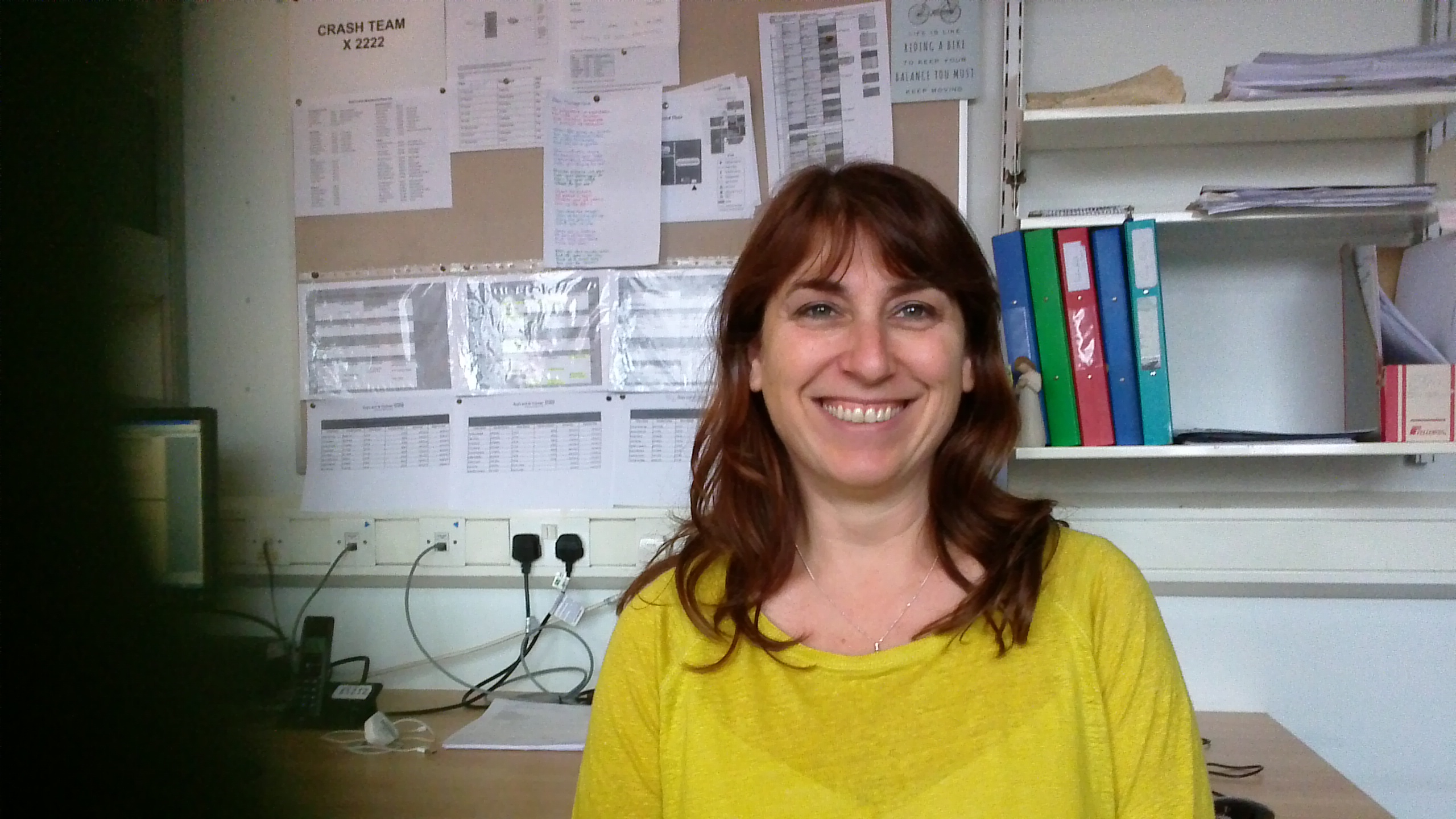
Lucie Knight: Specialist Psychologist
Lucie Knight is a Registered Counselling Psychologist with a longstanding interest in health psychology and chronic pain. Since 2005 she has been working at St Thomas’ Hospital in London for the INPUT Pain Management Unit. She is involved in leading residential as well as outpatient programmes and providing individual pain management psychology and supervision. Prior to her work at St Thomas’ she worked as a research and practicing psychologist in psycho-oncology at the Surgical University Hospital in Heidelberg, Germany. She has also worked in adult mental health, primary care and return to work projects. Publications include papers on the PMP care pathway and clinical effectiveness of a residential pain management programme.
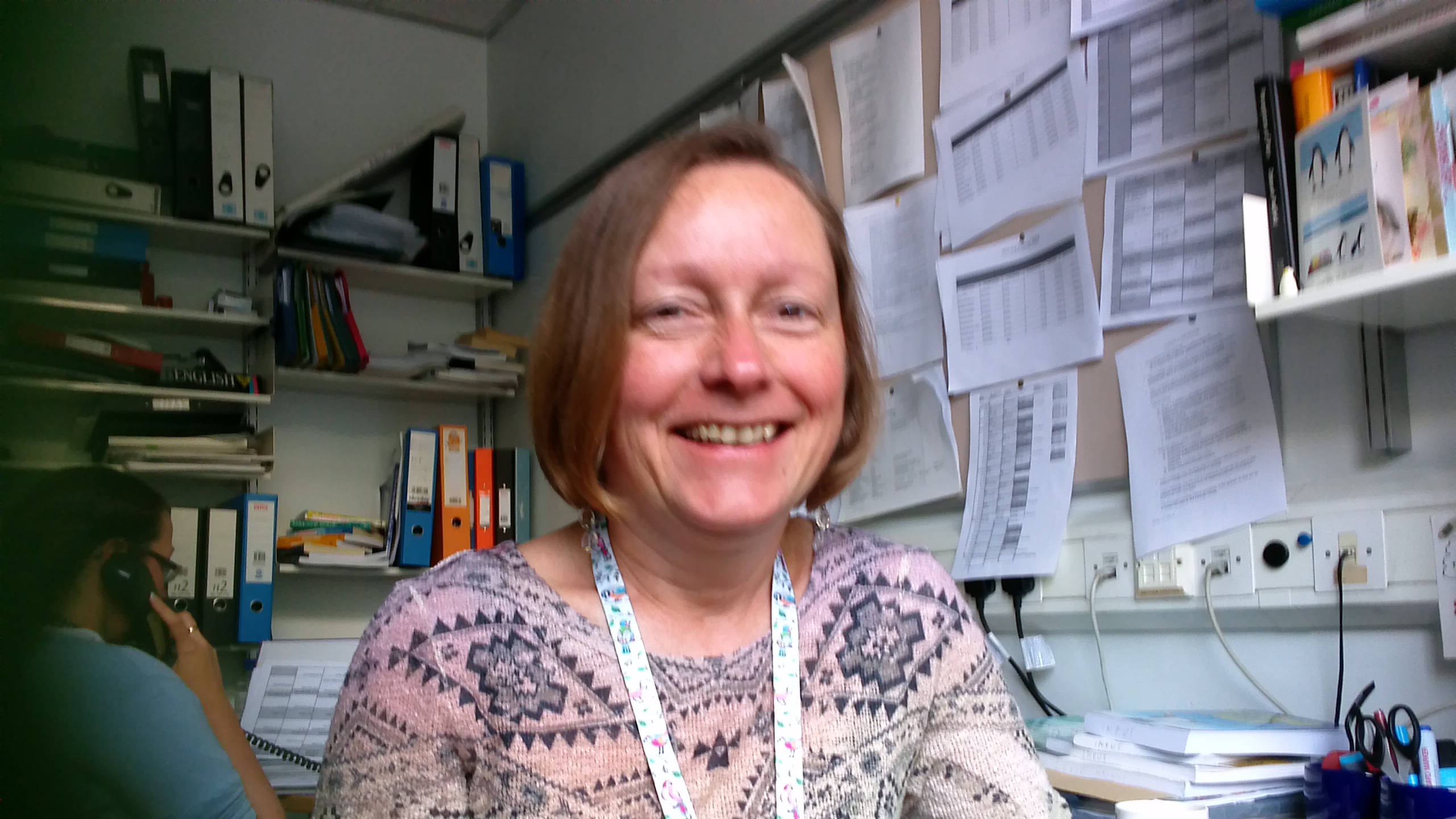
Ann-Maria Ahern: Clinical Specialist Physiotherapist
Ann-Maria Ahern is a Chartered Clinical Specialist Physiotherapist who has worked at Input since 2008. She and the other members of the interdisciplinary team at Input (including Occupational Therapists, Nurses, Psychologists, Trainee Psychologists, and medical staff) have collaborated over several years to interpret the ACT & Mindfulness models of therapy, and its application in a multidisciplinary pain management setting. Ann-Maria draws on other areas that interest her to inform her clinical practice and to cultivate continuing curiosity for her work including developments in basic science fields, embodied cognition literature, philosophy and the humanities.
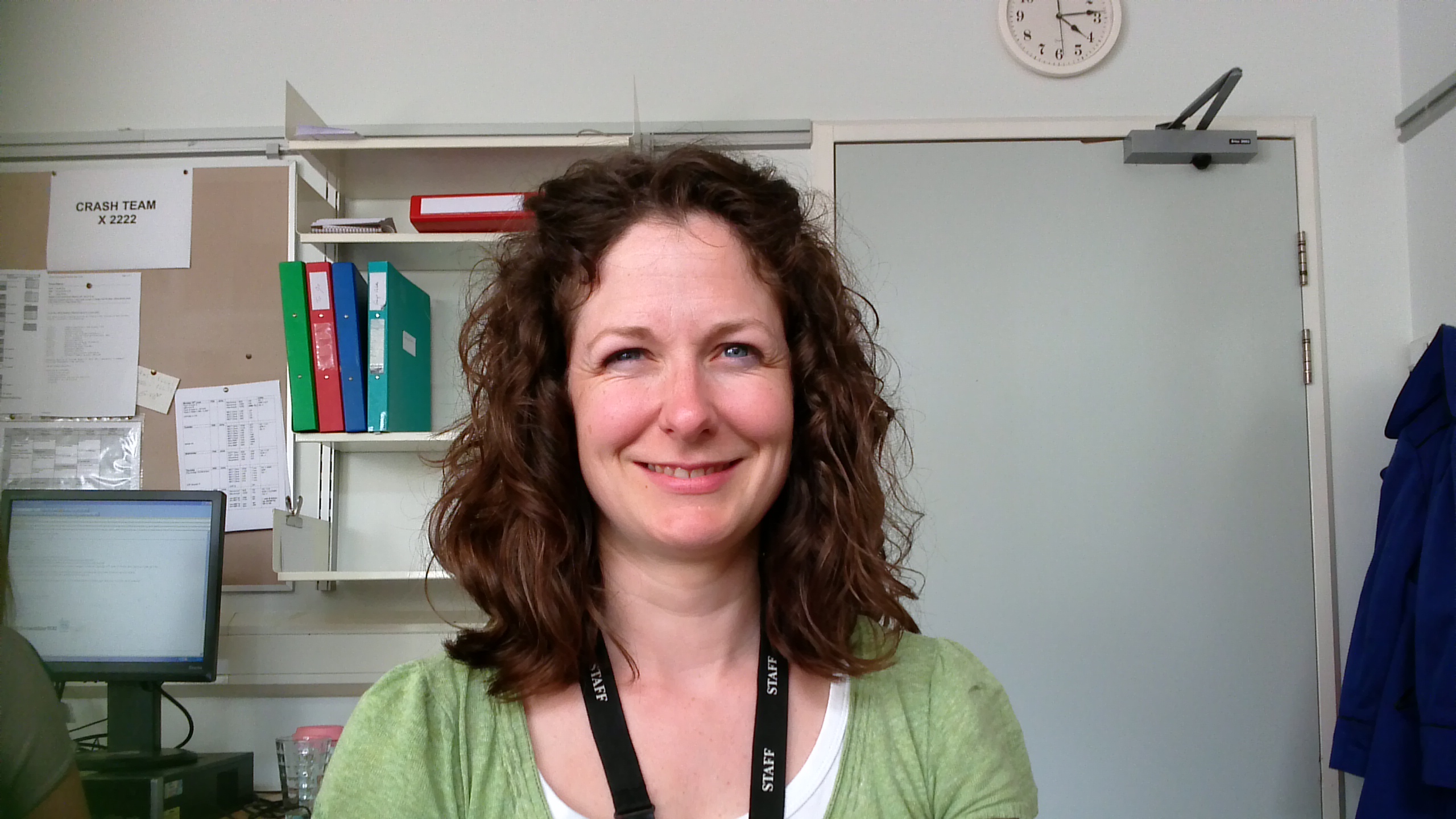
L.
Evaluation: exploring beyond the usual outcomes ?- Amanda C-de-C Williams & Diarmuid Denneny
Most pain programmes, if they evaluate their outcomes at all, use standard self-report instruments for pain, mood, and disability. While these are important, they omit some outcomes that matter to patients themselves, or to referrers, GPs, and commissioners, such as health care use. We will discuss evaluation of these outcomes; explore further options such as automated recording of activity; and describe some of the methods of analysing data beyond mean pre-post-followup comparisons.
Amanda C de C Williams
Amanda is an academic psychologist at UCL, with a clinical session at the Pain Management Centre, UCLH. She also works for the International Centre for Health and Human Rights. She has worked in the pain field for over 30 years, and before becoming an academic, she worked in inpatient and outpatient pain management programmes. At UCL she teaches undergraduate and postgraduate psychologists and medical students and supervises their research. Her particular interests are evaluation of psychologically-based treatments, including systematic reviews, meta-analyses, and national and international guidelines; in expression of pain and its interpretation by clinicians; in pain from torture; and in the use of responsive technology to extend healthcare. She has written over 200 papers and chapters on aspects of pain and psychology, and presents at national and international pain meetings.

Diarmuid Denneny
Diarmuid is lead physiotherapist at the pain management centre at University College London Hospitals (UCLH). He has over 20 years clinical experience. He is particularly interested in neuropathic pain, persistent pain and CCBT techniques in pain management, and leads the neuropathic pain pathway including CRPS at the UCLH pain management centre. Diarmuid is a qualified independent prescriber. He is interested in the clinical application of research, is involved in education and research at UCLH, and is about to commence an NIHR research fellowship exploring allied health professional training to deliver brief psychological interventions for patients with long term conditions.
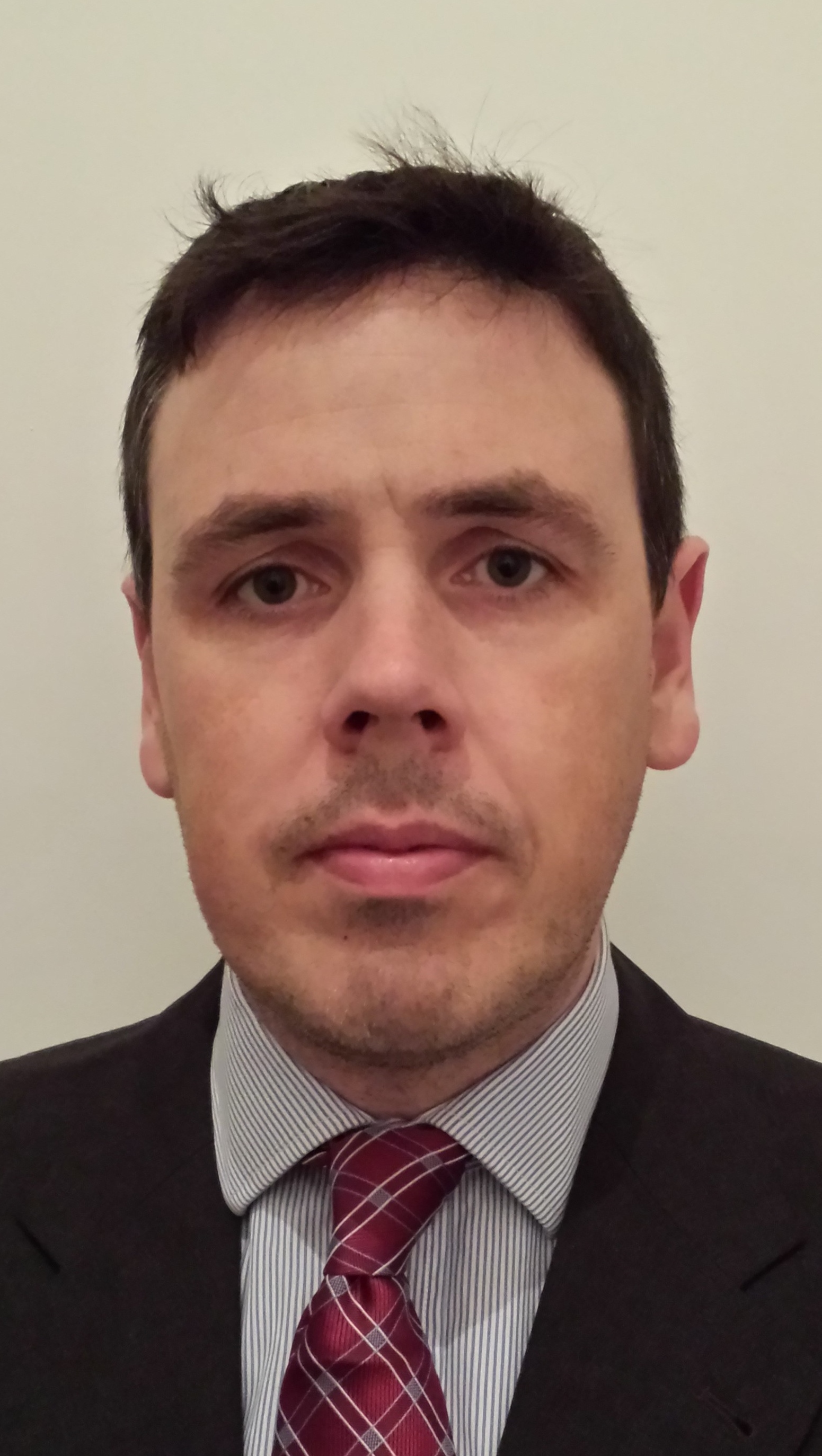
Workshop Details:
A.
‘Fear of Technology’ – Sarah Densham, clinical psychologist and John Worth, Dorset
Describing the challenges and benefits of using digital / online technology to deliver services and engage with clients, based on the experience of the team in Dorset [more details to follow].
B & E (Repeat)
Return to work: What can Pain Clinicians do? – Gail Sowden and Christine Parker
Learning Objectives:
i) To be better equipped (knowledge and skills) to assess and address obstacles to people with chronic pain remaining in or returning to work
ii) To take away practical resources that can be used with patients in the clinic.
iii) To be aware of other resources and services that people who have chronic pain and work related issues can be signposted to.
Description: One third of all work absence is attributable to long-term musculoskeletal conditions and it is widely recognised that presenteeism, sickness absence and work loss are associated with considerable costs to the individual, their families and to society. One of the chapters in The BPS PMP Guidelines (2013) was titled “Assisting retention and return to work in PMPs” and one of the standards for pain management programmes (Faculty of Pain Medicine, The core standards for pain management services in the UK , 2015) states that “Interventions to facilitate return to work should be viewed as an essential component of the work of PMP teams and be integrated with other treatment offered”. However, vocational rehabilitation is poorly understood and there is a common clinician belief that patients will not engage with work related interventions. It is often perceived by clinicians as complex, requiring specialist expertise and at the same time training is scarce. As a result clinicians often feel ill equipped to assess or address work related issues. This workshop therefore aims to provide information and practical advice on what busy pain management clinicians can do to support people with chronic pain to remain in or return to work. It will provide tools to support work-related discussions and facilitate planning for work. It will also provide information about resources and services that people can be signposted to.
Implications/conclusions: Assisting people with chronic pain to remain in or return to work is likely to improve physical and mental health and overall quality of life. This workshop will help equip pain management clinicians to meet the standard for pain management programmes and the BPS PMP Guidelines recommendations relating to work.
Gail Sowden (Convener):
Gail Sowden has clinical, research, teaching, service and role development expertise in vocational rehabilitation. She recently developed and delivered training to enable clinicians to fulfil the role of vocational case manager in a cluster randomised trial (The Study of Work and Pain (SWAP)). She is a Consultant Physiotherapist, Chair of the PMP SIG Committee and a NICE Fellow.

Christine Parker
Christine Parker practiced in Pain Management for over 10yrs and is a Senior Lecturer at the University of Salford. Her responsibilities include delivering the MSc Occupational and Vocational Rehabilitation and engaging in research and enterprise activity to improve collaboration between health and the workplace. Christine has delivered training for a range of health and social care professionals on developing healthy work conversations, work-related health outcomes and a work focus in routine practice.

C.
When life is on hold in the search for pain control: A seminar on Acceptance and Mindfulness in Pain Management. - David Gillanders
When people develop pain it is the most natural thing to seek to understand, treat underlying pathology and resolve the pain complaint. For some people however, this approach does not lead to resolution. Instead, life plans go on hold whilst the person seeks to control their pain as a prerequisite to living life. In the service of gaining control over pain (or not making it worse) people gradually stop doing normal activities, life shrinks, they experience less pleasure and a downward spiral of disuse, disability and distress can set in.
In this seminar, you will be introduced to the main concepts used in Acceptance and Commitment Therapy for chronic pain. You will learn that from an ACT perspective, acceptance is a behavioural choice, not a resigned, passive, defeat. You will learn that by increasing awareness of what is influencing us moment to moment, we are in a better position to control our own behaviour. You will learn what we mean by values and how they are linked to, but distinct from goals. Finally, you will learn that ACT’s main focus is on workability: on helping people to do what is effective.. Frequently, this focus on workability leads patients to step outside of our dominant cultural narrative of pain control, and to begin choosing acceptance and mindful awareness as a route to living more fully with a pain condition.
This seminar will contain teaching, reflection and live demonstration of techniques that are typically used in ACT for Chronic Pain.
David Gillanders is a Chartered Clinical Psychologist, member of the British Psychological Society, Health & Care Professions Council, British Association of Behavioural & Cognitive Psychotherapy and a founder member of the Association for Contextual Behavioural Science. He is a senior lecturer in clinical psychology at the University of Edinburgh and Academic Director of the doctoral programme in clinical psychology. He leads a programme of research into the application of contextual behavioural science to living well with ill health, as well research into training, supervision and basic measurement in behavioural science. He has published more than 30 peer reviewed articles and several book chapters, and is co-author of the self-help book, “Better Living with IBS”. He is a peer reviewed ACT trainer with ACBS. The peer review is the international association’s mark of high quality, high fidelity ACT training as evidenced by the applicant submitting a portfolio of training work (including observations) to be reviewed by independent ACT experts. David is a first Dan black belt in JKA Shotokan Karate, and the father of three children, seven, five and one years old.

D.
Mindfulness training for PMP staff - how much is enough? (Or, fear of being a mindfulness maverick) - Lars Williams, Jacquelyn Watson, Lorna Semple, Neil Rothwell
As the use of mindfulness-based interventions (MBIs) in healthcare settings has increased, so has the need for clearly defined and regulated training pathways for health professionals delivering these MBIs. However, nationally agreed minimum standards for formal mindfulness training are high, and may be difficult to meet for healthcare professionals who might not have a large commitment to delivering MBIs in their job plan.
Although pain management programmes (PMPs) are not, strictly speaking, MBIs, most PMPs incorporate some form of mindfulness practice – this is particularly the case for PMPs using Acceptance and Commitment Therapy (ACT) as an underlying model. If PMP staff are teaching mindfulness to patients attending their programmes, what sort of training and supervision should they have to do so?
The aim of this workshop is to explore how mindfulness is used in a PMP setting, discuss current national guidelines for practitioners delivering MBIs, and consider their relevance to staff who deliver mindfulness as part of a PMP. We are also keen to discover how PMP staff are being trained in mindfulness, and explore potential obstacles to meeting training requirements in a PMP setting. Should PMP staff undergo the same mindfulness training as staff delivering formal MBIs? Is there a role for a bespoke training pathway for PMP staff?
Lars Williams (MBChB, FRCA, FFPMRCA, Dip Pain Man), works in Glasgow as a full-time consultant in pain medicine, with a background in anaesthesia (and, briefly, psychiatry). He first became interested in mindfulness in 2008, when he began working at the Glasgow PMP, an ACT-based programme. After having led mindfulness sessions for many years (and produced a CD and manual for PMP participants), he had a bit of a shock when he began attending a local, psychology-led mindfulness supervision group and realised how far he was from meeting formal training requirements. He has subsequently rectified this to some extent, and is now a formally qualified mindfulness teacher, but pursuing this training has not been easy. Lars, Lyn and Lorna have piloted an 8-week MBSR course for PMP graduates, which they plan to extend to all pain service patients later in the year.

Jacquelyn Watson registered as a nurse in 1992 and has since gone on to qualify as an independent prescriber. She has worked within the Glasgow Pain Management Programme since its inception in 2007 and has been actively involved in various projects including the implementation and coordination of a patient delivered pain information session in the community and the co facilitation of an 8 week Mindfulness course for graduates of the Glasgow Pain Management Programme.

Lorna Semple is a Clinical Specialist Physiotherapist in Pain Management who works within the Glasgow Pain Management Programme in NHS Greater Glasgow and Clyde. She graduated with a BSc (Hons) in Physiotherapy from Glasgow Caledonian University and MSc Sports Medicine from University of Strathclyde. Work experience includes MSK Physiotherapy, Occupational Health, as well as Secondary and Tertiary Care Pain Services. Currently undertaking a NES Fellowship Award to evaluate post-registration, inter-disciplinary pain training delivery as well as current learning needs within NHSGGC. Current research activity includes: a qualitative study into factors which influence chronic pain patients’ responses to the Tampa Scale for Kinesiophobia (TSK) using a ‘thinking out loud’ approach.

Neil Rothwell is a freelance clinical psychologist. He has extensive experience in the practice and teaching mindfulness and has published articles on the approach. He has also been running regular mindfulness courses for clients and NHS staff for the past 15 years. He is part of a NES-funded project to make mindfulness available to patients with depression and other conditions. Previous jobs have included head of the Primary Care Adult Psychology Service in NHS Forth Valley, and clinical manager at the Robert Fergusson Unit national rehabilitation service for people with brain injury.

F.
‘Fear of Patient Involvement’ – Martin Dunbar (Glasgow) & Nick Ambler (Bristol)
This workshop is designed to explore clinicians’ fears about working with patient volunteers and looks at what can be done to allay those fears. Martin Dunbar will describe the various ways in which the Glasgow PMP has worked with patients to co-produce clinical materials and to deliver services and what training, supervision and when there is a need for more formal governance. Nick Ambler will update the conference on his and others work with PMP graduate led, follow-up groups.
Martin Dunbar is a consultant clinical psychologist and the clinical lead for the Glasgow and Clyde Pain Management Programme. He has previously contributed to the SIGN Guideline on the management of chronic pain and has served on Scotland’s National Steering Group for Chronic Pain.
Nick Ambler is a consultant clinical psychologist with the North Bristol NHS Trust. He has led the PMP for 28 years and over this time he developed a number of innovations in models of service provision, as well as applying self management methods to other long term conditions and developing the cancer recovery pathway.
G.
Fear of Self-Compassion: Compassion Focused Therapy (CFT) for Strivers in Pain – Zoey Malpus (Manchester)
Presenters: Dr Zoey Malpus Consultant Clinical Psychologist, Pain Team, Manchester Royal Infirmary Dr Lesley Armitage, Chartered Counselling Psychologist, Chester-le-Street Community Hopsital, Durham
Chair: Dr Hannah Dowling, Clinical Psychologist in Pain Management, Trafford Integrated Community Pain Team.
Brief overview:
Current guidelines recommend Cognitive Behavioural Therapy (CBT) based pain management for pain related disability and distress. Recent studies have suggested that self-compassion may be a key factor in determining the degree of psychological distress experienced by people in chronic pain and their ability to adjust to the pain (Costa & Pinto-Gouveia, 2013; Wren et al, 2012; Purdie & Morley, 2015).Many people with persistent pain experience high levels of shame and self-criticism and low self-compassion; these may present barriers to CBT strategies such as pacing and acceptance, because shame can drive people to over-activity.
Compassion Focused Therapy (CFT) is a third wave psychological therapy which has been adapted for persistent pain. CFT provides an explicit focus on de-shaming and developing self-compassion, while educating patients about neurobiology, evolutionary psychology and common humanity. CFT encourages self-compassion, acceptance and willingness to engage in activities without the need to control, fight or avoid pain. This work shop presents data from an eight week CFT for Pain group. This is a collaborative project delivered by Manchester and Durham Pain Teams and has been running for two years. There will be an opportunity to experience some of the techniques included in CFT for Pain groups.
Dr Zoey G. Malpus has been working in multidisciplinary pain teams for over twelve years, delivering psychologically based pain management in community, and hospital settings, including inpatient pain teams. For the last five years she has been developing Compassion Focused Therapy for Pain Management, sharing preliminary findings through poster abstracts and recent publication. Dr Malpus is currently an elected member of the British Pain Society Council, previous chair of the Pain Management Programme Special Interest Group and Pain Network Chair for the British Psychological Society. She was lead author for the pain psychologist chapter of the recent Core Standards for Pain Services in the UK, published by the Faculty of Pain Medicine, Royal College of Anaesthetists. She was also lead author of the e-pain module Psychological Assessment and Approaches to Treatment.

H & J. (Repeat)
Shame, Guilt and Humiliation – barriers to treatment, and to living with Chronic Pain – Jeremy Gauntlet-Gilbert
People with chronic pain experience high levels of shame and guilt. Moreover, every aspect of pain management treatment – struggling to exercise, to pace, to communicate assertively – can trigger further embarrassment and struggle. Unfortunately there has been little research on these emotions, and as such there is little information to guide treatment. This workshop will provide a guide and overview to these ‘self-conscious’ emotions and their clinical impact. We will review data on how these emotions affect functioning and life quality, as well as how they change over the course of pain management treatment. The workshop will then address clinical experience in this area and clinical implications. As a group, we will discuss psychological models and treatment, and also how these emotions can be addressed in other domains such as physical and activity management interventions.
I & K. (Repeat)
The Open, Aware and Engaged Therapist: Pain - Related Exposure - A Practical Approach – Clair Jacobs, Input
INPUT Pain Management Team
This workshop is an opportunity for the INPUT Pain Management team to share clinical experience of using ACT and exposure work within teams and patient groups.
We aim to provide a practical, experiential session that explores strategies for doing exposure work in the context of ACT. We can discuss how as clinicians we can improve and optimise our skills at noticing and targeting avoidance in our patients and in ourselves. We aim that this workshop is skills based and relevant to all disciplines stimulating curiosity into this fascinating and developing area of clinical practice.
Chair/Speaker:
Clair Jacobs: Specialist Physiotherapy Lead, Pain Management
Clair Jacobs is the Physiotherapy Lead at INPUT Pain Management Centre, Guys and Thomas’ NHS Trust. She specialises in the management of complex chronic pain conditions; helping patients increase function and manage the impact of the pain using an ACT approach. She has a clinical role specialising in multidisciplinary residential group based pain management programmes, pre-trial neuromodulation programmes and individual work. She is responsible for the management of the INPUT physiotherapy specialist team since 2012. Clair has published papers on topics including; ‘Applying the Psychological flexibility model for physiotherapy training’ and ‘Utility of physical performance measures in PMP’s’. She has run workshops in approaches to pain management in UK and overseas. Clair is interested in training and development in this field and in exploring practical application of movement to enhance well-being.

Lucie Knight: Specialist Psychologist
Lucie Knight is a Registered Counselling Psychologist with a longstanding interest in health psychology and chronic pain. Since 2005 she has been working at St Thomas’ Hospital in London for the INPUT Pain Management Unit. She is involved in leading residential as well as outpatient programmes and providing individual pain management psychology and supervision. Prior to her work at St Thomas’ she worked as a research and practicing psychologist in psycho-oncology at the Surgical University Hospital in Heidelberg, Germany. She has also worked in adult mental health, primary care and return to work projects. Publications include papers on the PMP care pathway and clinical effectiveness of a residential pain management programme.

Ann-Maria Ahern: Clinical Specialist Physiotherapist
Ann-Maria Ahern is a Chartered Clinical Specialist Physiotherapist who has worked at Input since 2008. She and the other members of the interdisciplinary team at Input (including Occupational Therapists, Nurses, Psychologists, Trainee Psychologists, and medical staff) have collaborated over several years to interpret the ACT & Mindfulness models of therapy, and its application in a multidisciplinary pain management setting. Ann-Maria draws on other areas that interest her to inform her clinical practice and to cultivate continuing curiosity for her work including developments in basic science fields, embodied cognition literature, philosophy and the humanities.

L.
Evaluation: exploring beyond the usual outcomes ?- Amanda C-de-C Williams & Diarmuid Denneny
Most pain programmes, if they evaluate their outcomes at all, use standard self-report instruments for pain, mood, and disability. While these are important, they omit some outcomes that matter to patients themselves, or to referrers, GPs, and commissioners, such as health care use. We will discuss evaluation of these outcomes; explore further options such as automated recording of activity; and describe some of the methods of analysing data beyond mean pre-post-followup comparisons.
Amanda C de C Williams
Amanda is an academic psychologist at UCL, with a clinical session at the Pain Management Centre, UCLH. She also works for the International Centre for Health and Human Rights. She has worked in the pain field for over 30 years, and before becoming an academic, she worked in inpatient and outpatient pain management programmes. At UCL she teaches undergraduate and postgraduate psychologists and medical students and supervises their research. Her particular interests are evaluation of psychologically-based treatments, including systematic reviews, meta-analyses, and national and international guidelines; in expression of pain and its interpretation by clinicians; in pain from torture; and in the use of responsive technology to extend healthcare. She has written over 200 papers and chapters on aspects of pain and psychology, and presents at national and international pain meetings.

Diarmuid Denneny
Diarmuid is lead physiotherapist at the pain management centre at University College London Hospitals (UCLH). He has over 20 years clinical experience. He is particularly interested in neuropathic pain, persistent pain and CCBT techniques in pain management, and leads the neuropathic pain pathway including CRPS at the UCLH pain management centre. Diarmuid is a qualified independent prescriber. He is interested in the clinical application of research, is involved in education and research at UCLH, and is about to commence an NIHR research fellowship exploring allied health professional training to deliver brief psychological interventions for patients with long term conditions.

Programme Outline
Thursday 14th September 2017
08:45 - 09:30 Registration and coffee
09:30 - 09:45 Welcome and Housekeeping
09:45 - 10:30 Plenary Session 1 An update on the Fear-Avoidance model of chronic pain - Johan Vlaeyen
10:30 - 11:15 Plenary Session 2 Does our evaluation tell us what we need to know? - Amanda C de C Williams
11:15 - 11:45 Coffee break
11:45 - 12:45 Workshop Session 1 (Delegates to attend 1 of 3 sessions)
D. Mindfulness training for PMP staff - how much is enough?
B. Return to work (repeated in afternoon)
C. Introduction to ACT
12:45 - 13:15 Unidisciplinary meetings
13:15 - 14:15 Lunch
14:15 - 15:15 Workshop Session 2 (Delegates to attend 1 of 3 sessions)
A. Fear of technology
E. Return to work (repeat)
F. Fear of patient involvement
15:15 - 15:45 Elevator pitch poster presentations, followed by poster viewing
15:45 - 16:15 Coffee break
16:15 - 17:15 Plenary Session 3 ACT Debate - 'ACT: best thing since sliced bread or the Emperor’s new clothes?' - David Gillanders vs James Coyne
17:30 onwards Social Event - Piping Centre
Friday 15th September
09:00 - 09:30 Registration
09:30 - 10:15 Plenary Session 4 Pain neurophysiology education – the patients perspective - Cormac Ryan
10:15 - 11:00 Poster Oral Presentation Session
11:00 - 11:30 AGM/Poster viewing session
11:30 - 11:50 Coffee break
11:50 - 12:50 Workshop Session 3 (Delegates to attend 1 or 3 sesions)
G. Compassion Focused Therapy
H. Shame (repeated in afternoon)
I. ACT - Open, Aware, Engaged Therapist (repeated in afternoon)
12:50 - 13:50 Lunch
13:50 - 14:50 Workshop Session 4 (Delegates to attend 1 or 3 sesions)
J. Shame (repeat)
K. ACT - Open, Aware, Engaged Therapist (repeat)
L. Alternative outcomes
14:50 - 15:35 Plenary Session 5 Identifying and addressing psychological issues in people presenting with pain - Tamar Pincus
15:35 - 15:45 Closing remarks
Thursday 14th September 2017
08:45 - 09:30 Registration and coffee
09:30 - 09:45 Welcome and Housekeeping
09:45 - 10:30 Plenary Session 1 An update on the Fear-Avoidance model of chronic pain - Johan Vlaeyen
10:30 - 11:15 Plenary Session 2 Does our evaluation tell us what we need to know? - Amanda C de C Williams
11:15 - 11:45 Coffee break
11:45 - 12:45 Workshop Session 1 (Delegates to attend 1 of 3 sessions)
D. Mindfulness training for PMP staff - how much is enough?
B. Return to work (repeated in afternoon)
C. Introduction to ACT
12:45 - 13:15 Unidisciplinary meetings
13:15 - 14:15 Lunch
14:15 - 15:15 Workshop Session 2 (Delegates to attend 1 of 3 sessions)
A. Fear of technology
E. Return to work (repeat)
F. Fear of patient involvement
15:15 - 15:45 Elevator pitch poster presentations, followed by poster viewing
15:45 - 16:15 Coffee break
16:15 - 17:15 Plenary Session 3 ACT Debate - 'ACT: best thing since sliced bread or the Emperor’s new clothes?' - David Gillanders vs James Coyne
17:30 onwards Social Event - Piping Centre
Friday 15th September
09:00 - 09:30 Registration
09:30 - 10:15 Plenary Session 4 Pain neurophysiology education – the patients perspective - Cormac Ryan
10:15 - 11:00 Poster Oral Presentation Session
11:00 - 11:30 AGM/Poster viewing session
11:30 - 11:50 Coffee break
11:50 - 12:50 Workshop Session 3 (Delegates to attend 1 or 3 sesions)
G. Compassion Focused Therapy
H. Shame (repeated in afternoon)
I. ACT - Open, Aware, Engaged Therapist (repeated in afternoon)
12:50 - 13:50 Lunch
13:50 - 14:50 Workshop Session 4 (Delegates to attend 1 or 3 sesions)
J. Shame (repeat)
K. ACT - Open, Aware, Engaged Therapist (repeat)
L. Alternative outcomes
14:50 - 15:35 Plenary Session 5 Identifying and addressing psychological issues in people presenting with pain - Tamar Pincus
15:35 - 15:45 Closing remarks





